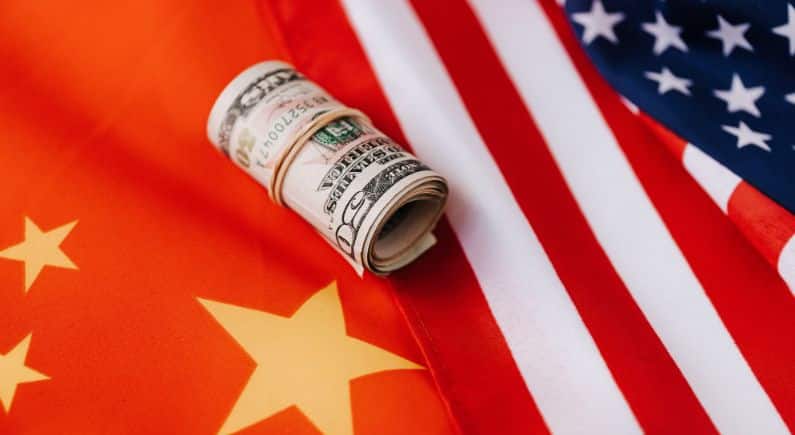- Roadshow to Rome
- Awards
- Exhibitors
- Speakers
- Media Partners
- News

China has accused the United States government of masterminding the theft of 127,272 Bitcoin, worth roughly $13 billion, from the now-defunct LuBian Bitcoin mining pool, in what Beijing describes as one of the largest crypto heists in history.
The Chinese National Computer Virus Emergency Response Centre (CVERC) reported last week that the 2020 theft was most likely the result of a “state-level hacker operation” headed by the US. According to the FBI, the extraordinarily slow and silent transfer of the allegedly stolen Bitcoin suggested that a government actor rather than regular hackers was involved.
The report ties the stolen Bitcoin to digital assets later seized by the US Department of Justice (DOJ) and linked to Chen Zhi, the chairman of Cambodia’s Prince Group. Chen was indicted in October 2024 in New York for alleged wire-fraud conspiracy and money laundering, accused of using illicit proceeds to fund “large-scale crypto mining operations,” including LuBian.
In its 8 October indictment, the US government claimed LuBian’s wallets received large sums of cryptocurrency “from sources unrelated to new mining.” However, federal prosecutors have declined to disclose how or when they gained control of the Bitcoin. The DOJ’s civil forfeiture complaint confirmed the seizure of 127,271 Bitcoin, marking the largest crypto forfeiture action in US history.
China’s cybersecurity agency contends that the US government may have “used hacking techniques as early as 2020 to steal the 127,000 Bitcoins held by Chen Zhi,” describing it as a “classic ‘black eats black’ operation orchestrated by a state-level hacking organisation.”
Chen’s legal team has rejected the US allegations. In a letter filed with a US court this week, his attorney Matthew L. Schwartz, chairman of Boies Schiller Flexner, requested additional time to trace the Bitcoin allegedly stolen from LuBian.
“We are working closely with cryptocurrency experts to trace the Bitcoin that the government seized over a year ago, and which was stolen back in 2020,” Schwartz said in a statement to Bloomberg, adding that the DOJ’s case was “seriously misguided.”
Chen, who remains outside US custody, has not yet been extradited, according to federal prosecutors.
The accusation marks the latest in a series of cyber espionage claims by Beijing against Washington. Earlier this year, China alleged that the US exploited a Microsoft Exchange vulnerability to conduct cyberattacks on Chinese companies. More recently, the Chinese government said it had “irrefutable evidence” of a US-led cyberattack targeting its National Time Service Center.
While China’s statements rarely include detailed forensic evidence, analysts note that these claims form part of a broader campaign to counter US accusations of Chinese hacking—a recurring point of tension between the two nations’ cybersecurity narratives.
If substantiated, China’s allegation would implicate the US in one of the largest state-level crypto seizures in history. Conversely, if the US case against Chen holds, it could highlight how global crypto mining operations can be intertwined with complex networks of fraud and laundering.
As both sides trade accusations, the $13 billion Bitcoin mystery continues to blur the line between digital finance and international espionage.
Last month, amid heightened tensions due to the US-China trade conflict, Bitcoin fell 8.4 percent to $104,782 in mid-Oct. The decline followed the announcement by US President Donald Trump of additional export limitations on important software and a 100 percent tariff on Chinese tech exports. The statement caused a severe reaction in the world’s financial markets, which resulted in large declines in the value of cryptocurrencies.
Meanwhile, in the US, the Senate Agriculture Committee released a draft bill that would give the Commodity Futures Trading Commission (CFTC) clear authority over spot trading of digital commodities. This is a key step in defining where the CFTC’s role ends and the SEC’s begins.
The draft still has unresolved sections and comes at a time when Congress is focused on ending a government shutdown. It’s not law yet, but it signals real progress and gives exchanges, developers, and investors new issues to consider.